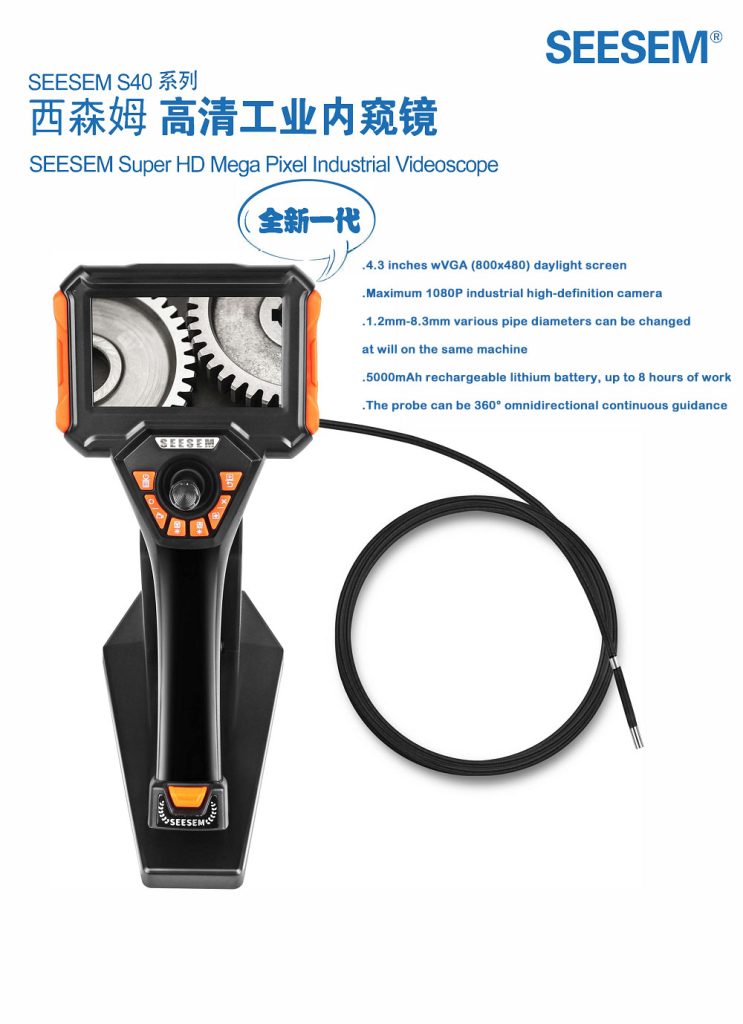Industrial videoscopes are advanced inspection tools used to visualize and assess the internal conditions of inaccessible or hard-to-reach areas within industrial settings. They play a crucial role in various industries, facilitating efficient inspections, 유지, and troubleshooting processes. This article provides an overview of common types of industrial videoscopes, their applications in different industries, and important equipment specifications.
- Types of Industrial Videoscopes: Industrial videoscopes are available in different configurations and designs to suit specific inspection needs. The following are some commonly used types of industrial videoscopes:
a) Rigid Videoscopes: Rigid videoscopes consist of a straight or articulated rigid probe, allowing direct insertion into cavities and pipes. They are ideal for inspections requiring precise control and offer high-resolution imaging. Rigid videoscopes find applications in industries such as aerospace, 자동차, 그리고 제조.
b) Flexible Videoscopes: Flexible videoscopes utilize a flexible insertion tube, enabling navigation through curved or irregular pathways. They provide versatility in inspecting complex components and are commonly used in industries such as aviation, power generation, and plumbing.
기음) Borescopes: Borescopes are long, tubular devices designed for inspections requiring access to narrow openings or deep recesses. They often feature optical or digital zoom capabilities and are widely used in industries such as oil and gas, 석유화학, and automotive.
디) Articulating Videoscopes: Articulating videoscopes possess a flexible insertion tube with remote-controlled articulation capabilities. They allow the user to steer the probe tip, providing enhanced maneuverability and access to challenging inspection areas. Articulating videoscopes are commonly employed in industries such as aviation, electronics, and turbine maintenance.
- Industrial Applications: Industrial videoscopes have a wide range of applications across various industries, including:
a) Aerospace and Aviation: Videoscopes are utilized for inspecting aircraft engines, 터빈 블레이드, 및 기타 중요한 구성 요소, ensuring the integrity and performance of aerospace systems.
b) 자동차: Videoscopes are used for engine inspections, cylinder bores, 연료 인젝터, and other automotive components, aiding in diagnostics, 품질 관리, 예방적 유지보수.
기음) 조작: Videoscopes facilitate inspections of machinery, 용접, casting, and assembly lines, allowing for efficient quality checks, defect detection, and process optimization.
디) 발전: Videoscopes play a vital role in power plants for inspecting boilers, 터빈, heat exchangers, and condenser tubes, ensuring operational efficiency and identifying potential issues.
e) Petrochemical and Oil Refineries: Videoscopes assist in inspecting pipes, 탱크, and vessels for corrosion, 막힘, and structural integrity, enabling preventive maintenance and minimizing downtime.


